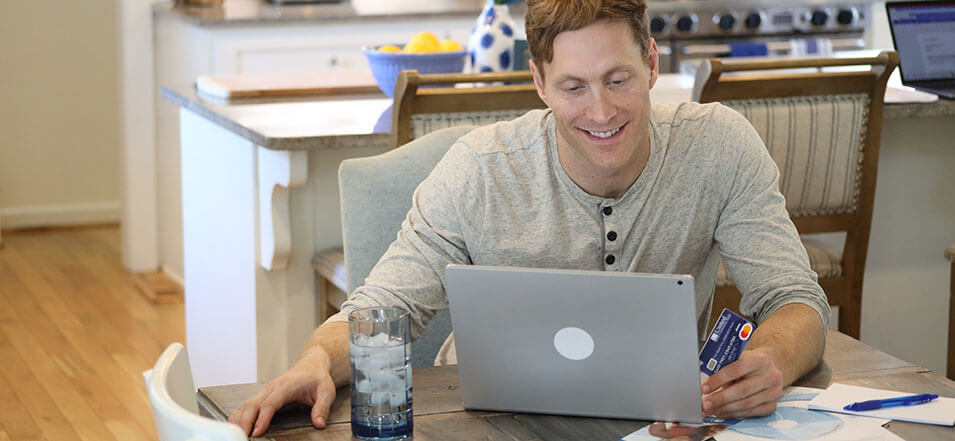Banking Online Safely: What You Need to Know

Key Takeaways:
- Online banking can be a convenient way to manage your finances.
- To stay safe while banking online, use strong and unique passwords, enable multi-factor authentication, avoid public Wi-Fi, and keep your software updated.
- With United, you can also use the Card Controls app to establish spending limits, set alerts, and turn your card off immediately if it's lost or stolen.
Online banking is a popular and convenient way to manage your finances. While it offers many benefits, like 24/7 access to your accounts and the ability to make transactions from anywhere, it’s important to be aware of the potential risks and how to keep your information safe. Here’s what you need to know to stay protected while banking online.
Secure Passwords
One of the most important steps you can take to keep your information safe is to use strong and unique passwords. Avoid using easily guessable information such as your name or date of birth, and make sure your password is 8 characters or longer and includes a mix of numbers, letters, and symbols. Don’t use your online banking password for other online accounts, and make sure to change it regularly.
Multi-Factor Authentication
Multi-factor authentication adds an extra layer of security to your accounts by requiring you to enter a code in addition to your password when logging in. This code is typically sent to your phone or email and helps ensure that only you have access to your account.
Avoid Public Wi-Fi
Public Wi-Fi networks are often unsecured, which makes them a target for hackers. If you need to access your online banking on the go, avoid using public Wi-Fi and instead use a secure, private network such as your own data plan or a virtual private network (VPN).
Keep Your Software Updated
Make sure to regularly update your computer’s operating system, web browser, and any security software you have installed. These updates often include important security fixes and can help keep your banking information safe.
Be Cautious of Phishing Scams
Phishing scams are designed to trick you into giving away your personal information, often through fake emails or websites that appear to be from a legitimate source. Always be cautious of emails or links that ask for sensitive information, and only enter personal information on websites with a secure, encrypted connection (indicated by a lock icon and “https” in the address bar).
Set Up Alerts and Notifications
Within most online banking platforms, you have the option to set up personalized alerts. You can get alerted when you’ve spent over a certain amount, when your account balance goes below a number you specify, or when your card was used at a certain retailer or in a certain location. Alerts are a great way to stay up to date on your account and ensure that you’ll be notified right away if anything suspicious happens.
Use Card Controls
If you’re a United customer, you also have access to the Card Controls app. This service provides even more peace of mind—you can use it to establish spending limits, set alerts, and turn your card off immediately if it’s lost or stolen (and then back on if you find it).By following these tips and taking advantage of the safety features offered at your bank, you can help ensure the safety of your information and online banking accounts. Remember to always be vigilant and to report any suspicious activity immediately. With the right precautions, online banking can be a secure and convenient way to manage your finances.












